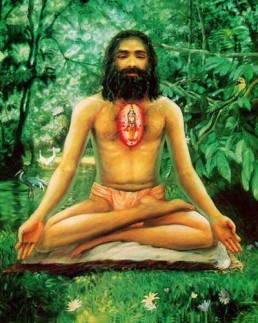Patanjali Yogasutra Introduction
Part 1 – Samādhi-pāda – Yoga and its Aims
1.1
1.2
1.3
1.4
1.5
1.6
1.7
1.8
1.9
1.10
1.11
1.12
1.13
1.14
1.15
1.16
1.17
1.18
1.19
1.20
1.21
1.22
1.23
1.24
1.25
1.26
1.27
1.28
1.29
1.30
1.31
1.32
1.33
1.34
1.35
1.36
1.37
1.38
1.39
1.40
1.41
1.42
1.43
1.44
1.45
1.46
1.47
1.48
1.49
1.50
1.51
Part 2 – Sādhana-pāda – Yoga and its Practice
2.1
2.2
2.3
2.4
2.5
2.6
2.7
2.8
2.9
2.10
2.11
2.12
2.13
2.14
2.15
2.16
2.17
2.18
2.19
2.20
2.21
2.22
2.23
2.24
2.25
2.26
2.27
2.28
2.29
2.30
2.31
2.32
2.33
2.34
2.35
2.36
2.37
2.38
2.39
2.40
2.41
2.42
2.43
2.44
2.45
2.46
2.47
2.48
2.49
2.50
2.51
2.52
2.53
2.54
2.55
Part 3 – Vibhūti-Pāda – Powers
3.1
3.2
3.3
3.4
3.5
3.6
3.7
3.8
3.9
3.10
3.11
3.12
3.13
3.14
3.15
3.16
3.17
3.18
3.19
3.20
3.21
3.22
3.23
3.24
3.25
3.26
3.27
3.28
3.29
3.30
3.31
3.32
3.33
3.34
3.35
3.36
3.37
3.38
3.39
3.40
3.41
3.42
3.43
3.44
3.45
3.46
3.47
3.48
3.49
3.50
3.51
3.52
3.53
3.54
3.55
3.56
Part 4 – Kaivalya-pāda – Liberation
4.1
4.2
4.3
4.4
4.5
4.6
4.7
4.8
4.9
4.10
4.11
4.12
4.13
4.14
4.15
4.16
4.17
4.18
4.19
4.20
4.21
4.22
4.23
4.24
4.25
4.26
4.27
4.28
4.29
4.30
4.31
4.32
4.33
4.34

Commentary on Sri Patanjali Yogasutra by Swami Vivekananda
When this knowledge comes, it will come, as it were, in seven grades, one after the other; and when one of these begins, we know that we are getting knowledge. The first to appear will be that we have known what is to be known. The mind will cease to be dissatisfied. While we are aware of thirsting after knowledge, we begin to seek here and there, wherever we think we can get some truth, and failing to find it we become dissatisfied and seek in a fresh direction. All search is vain, until we begin to perceive that knowledge is within ourselves, that no one can help us, that we must help ourselves. When we begin to practise the power of discrimination, the first sign that we are getting near truth will be that that dissatisfied state will vanish. We shall feel quite sure that we have found the truth, and that it cannot be anything else but the truth. Then we may know that the sun is rising, that the morning is breaking for us, and taking courage, we must persevere until the goal is reached. The second grade will be the absence of all pains. It will be impossible for anything in the universe, external or internal, to give us pain. The third will be the attainment of full knowledge. Omniscience will be ours. The fourth will be the attainment of the end of all duty through discrimination. Next will come what is called freedom of the Chitta. We shall realise that all difficulties and struggles, all vacillations of the mind, have fallen down, just as a stone rolls from the mountain top into the valley and never comes up again. The next will be that the Chitta itself will realise that it melts away into its causes whenever we so desire. Lastly we shall find that we are established in our Self, that we have been alone throughout the universe, neither body nor mind was ever related, much less joined, to us. They were working their own way, and we, through ignorance, joined ourselves to them. But we have been alone, omnipotent, omnipresent, ever blessed; our own Self was so pure and perfect that we required none else. We required none else to make us happy, for we are happiness itself. We shall find that this knowledge does not depend on anything else; throughout the universe there can be nothing that will not become effulgent before our knowledge. This will be the last state, and the Yogi will become peaceful and calm, never to feel any more pain, never to be again deluded, never to be touched by misery. He will know he is ever blessed, ever perfect, almighty.
Yogasutra – Verse 2.27 – Yogasutra-2.27-tasya saptadhā – In Sanskrit with English Transliteration, Translation, Meaning and Commentary by Swami Vivekananda – Yogasutra-2-27
